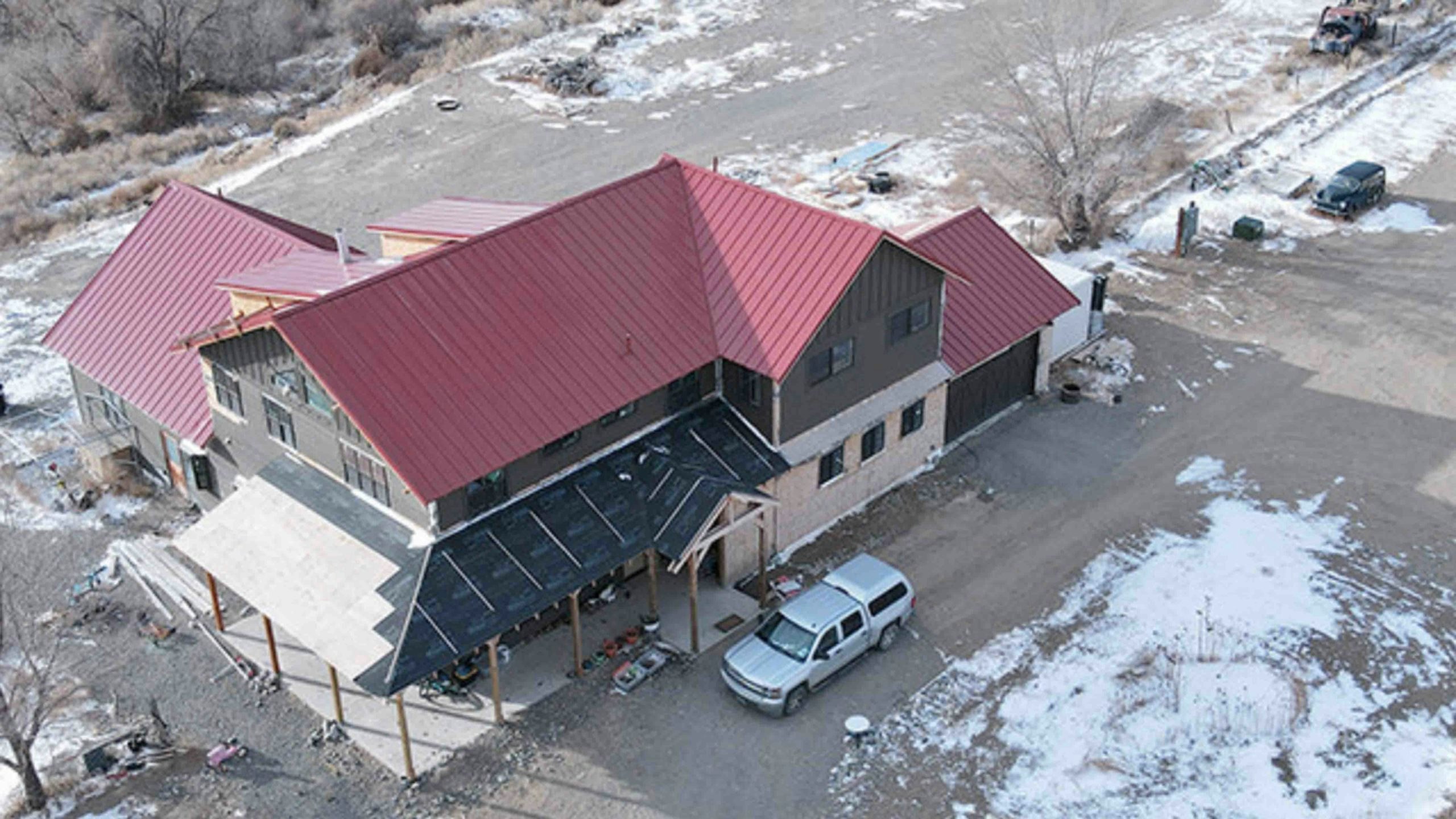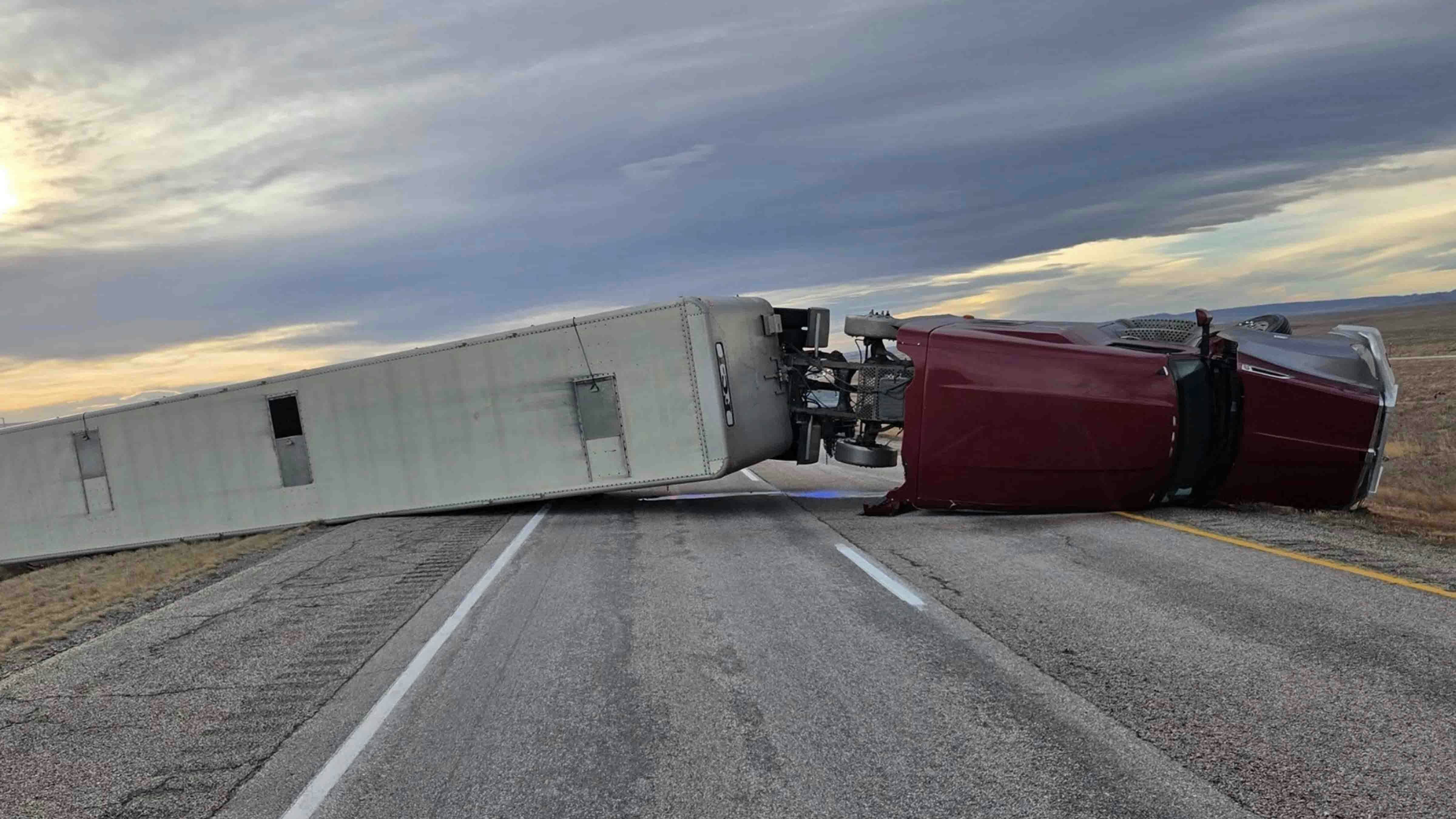By Kevin Killough, Powell Tribune
(This is the first of a two-part series looking at how people who pay contractors thousands of dollars find they have no way to recoup their losses if things go wrong.)
Dan Catone was driving back from a business meeting in September 2020 when he got a call from his younger brother. The drain in the downstairs bathroom was backing up and Dan needed to come home immediately.
It was not a good time for plumbing problems. The Catones had a houseful of family members in town for the Catholic confirmation of their twin children.
The couple had hired Mike Beyer more than a year earlier to construct the custom-built home on their property near Powell. But after delays and what they saw as substandard workmanship, the Catones had fired Beyer just a couple weeks before. Even though their house needed extensive work to be complete, the Catones brought in other contractors to get the house in a state that they could at least move in and accommodate their guests.
But when Dan got home, he couldn’t believe what he was seeing: Sewage was pouring out of the shower drain, through the hall and into the living room.
“It was a complete disaster,” Dan recalled.
There were many kids in the house, including infants. Dan’s elderly father had to roll his wheelchair through the river of sewage to get to a dry spot in the dining room.
The backup was just the first indication that something was very wrong with the construction. Before long, windows on the first floor cracked as the second story began collapsing on the first. Eventually, the Catones learned they would need to tear the house down and build a whole new one. And despite exhausting all their options — including filing a civil lawsuit against Beyer — the family has lost $500,000, Dan said.
The Catones aren’t alone. Contractors can operate in rural Park County with almost no oversight. Most contractors serve their customers well, but when contractors do substandard work or take money for work they don’t do, there is almost nothing people can do to get their money back.
‘One very sad note’
The Catones moved to Powell in the fall of 2018 from Fort Bragg, California, where Dan had started his own private wealth management company. Over his career, he’s founded a number of financial service companies.
Like many residents of the Golden State, the Catones were drawn to Wyoming’s business-friendly atmosphere and wholesome quality of the Powell community. With two daily flights from Cody to Denver, it was easy for Dan to run his corporations from his office in downtown Powell, while raising his children in a safe, small town with a higher quality of life.
Two years later, the Catones don’t regret their move.
“We love it here,” Dan said. “The people are wonderful. The culture is fantastic. It’s a very family-oriented farming and ranching community. Our kids have made a lot of friends. It’s all been lovely … with one very sad note.”
The Catones met Mike Beyer at St. Barbara’s Catholic Church. Dan and his wife, Jen, had purchased some property near Powell in April 2019, where they wanted to build their dream home.
Originally, the Catones were going to swap some land with Beyer — a former mayor of the town of Deaver — in exchange for some road improvements and bringing in utilities for their planned house. While discussing that project, Beyer said he had been building custom homes for three years in Colorado, and had all the qualifications to build the Catone’s house. The Catones say Beyer also reported that he could save them money because he wouldn’t need to hire as many subcontractors, which would reduce the cost by about 35%.
According to the Catones, Beyer said he wanted to establish a contracting business, and building their home would give him something to showcase, as well as some references. Dan has enjoyed a lot of success with his own businesses, so in a “pay it forward” way, he said he tries to help people trying to get their own businesses going.
Beyer showed them pictures of projects he claimed to have built in Colorado, but the Catones say the home he eventually built in rural Powell showed very little knowledge of custom home building.
“Perhaps foolishly we just assumed people are honest at church,” Dan said. “And that’s something we’re going to continue to believe, because it’s a better way to live.”
The Tribune made multiple phone calls and left multiple voicemails at a phone number for Beyer, seeking comment for this story. None of the calls were returned.
Many delays
When the Catones hired Beyer, they say he reported that construction would begin in June 2019, and their new home would be ready to move into by May 2020.
The Catones got a $680,000 loan for the construction. Beyer wasn’t on the bank’s approved list of contractors, Jen said, but he passed the bank’s screening and satisfied its insurance requirement.
Beyer had full access to the Catones’ loan and would draw out any amount needed for the project under general categories, such as plumbing and electrical.
However, the summer of 2019 came and went, and Beyer hadn’t started work on the home. It wasn’t until October 2019 that Beyer poured the foundation — although the Catones later learned he didn’t do proper site preparation work — and he started framing in December.
The work proceeded without a contract. Beyer, the Catones said, showed them a sample contract before construction started, but, despite repeated requests, never provided a document to sign.
In the meantime, the Catones were renting. As the May 2020 move-in date approached, the COVID-19 pandemic hit and their new house was nowhere near ready. Beyer blamed the pandemic for the delays, which was entirely plausible.
“Meanwhile, we’re seeing tens of thousands of dollars vanishing from our bank account,” Jen recalled.
She commuted daily to the family’s uncompleted home to take care of their horses and other animals, as they couldn’t keep them on the property they rented. They had no water or power to the property, so the Catones hauled water for their animals; with no power to thaw frozen water, it needed to be brought in boiling so it wouldn’t freeze.
The Catones homeschool their four children, so Jen would pack everything they needed for the day and teach lessons in a propane-heated shack. A generator supplied the electricity, as Beyer had failed to provide power, despite promising to have it by the previous fall.
“We call it our ‘Little House on the Prairie’ year,” Jen said.
By this point, the Catones were in a “in for a penny” situation. Contractors in the area were scarce and booked up for years — and they were unlikely to agree to complete a house that someone else started. The Catones endured the inconvenience and hoped Beyer would get their house built by the time their lease ran out on the rental.
Final budget
The couple admits they weren’t paying as much attention to the situation as they should have, but with Jen homeschooling four kids and Dan running six corporations — which required constant travel — it was hard to find the time.
“We’re just busy, busy people,” Dan explained. “When we hire people, we just trust people to do it.”
There were, though, indications that something wasn’t right. Beyer would show up and work on the house for a few hours and then disappear for the rest of the week. When Beyer was working, he always seemed to have a whole new crew.
There were also problems with the work. For example, Beyer had installed the drywall on the upper floor, but the cuts were uneven with gaps filled in with caulking, Dan said; the Catones hired a subcontractor who’d done the lower level to re-do the upstairs
“We basically had to beg them to do it,” Dan said. “They didn’t want to touch it.”
By June 2020, the house wasn’t even halfway complete and the Catones’ lease on their rental was running out. Dan then discovered there was only $50,000 left in the account, although Beyer said they’d have $150,000 remaining for outbuildings, such as a barn and “man cave.” Dan asked Beyer how much it would cost just to get the house done so they could move in. Beyer provided a spreadsheet that tallied up $52,100 to complete that house; Beyer also told the Catones all the subs had been paid, which they say wasn’t true.
By August 2020, the house still wasn’t complete, and the Catones no longer trusted anything Beyer told them. The couple fired him, but their ordeal had really just begun.
A sinking feeling
It was just a couple weeks later that the family had a house full of guests and sewage flowing out of the shower drain and seeping into the walls. The Catones hired Hunter Clean Care to clean and sanitize the impacted areas, and hired a plumber to determine what was causing the backup.
The plumber discovered the entire second floor was draining into a sewer line that was plugged with cement. The Catones ended up spending thousands of dollars to build a temporary drainage system and unclog the pipe, on top of the cleaning and lodging bills for their displaced relatives.
Shortly after that, Jen discovered cracks in the downstairs windows, which the family learned was the result of structural pressure. The house hadn’t been constructed with the proper supports, so much of the weight of the top floor was resting on the window frames.
Jen and Dan hired engineers and contractors to figure out what needed to be done to keep the house from collapsing. They discovered there were no headers in several walls, and Beyer had cut the trusses without engineering them.
“In our opinion, you did not receive a residential structure that meets some of the basic requirements of the International Building Code or the International Residential Code,” the preliminary engineering report said.
The Catones ended up paying another local contractor to help install supports to keep the house from collapsing.
Dan also found discrepancies in Beyer’s accounting when he went to make sure the subcontractors — who Dan said did great work — had been paid. Some had not, even though large sums had been taken from the Catones’ account, some to pay subcontractors.
For work Beyer did himself, the amounts withdrawn didn’t match up to the cost of the materials he purchased. Beyer had taken out $60,000 for a radiant heating system, but it didn’t work as intended and wasn’t complete. The Catones paid plumbers $20,000 to install a functioning system.
“So we paid $60,000 on something that really should have cost $20,000,” Dan said.
The numerous problems the Catones encountered ultimately proved irreparable. Due to the extensive structural and foundation problems, the Catones discovered all the work they put into their house after firing Beyer was just more wasted money: It will be more cost effective to tear the whole building down and build a new one.
“Do you know what it’s like to have your spouse sobbing in your arms when she finds out the home needs to be torn down and rebuilt from scratch?” Dan wrote in a May email to Beyer.
The contractor never replied.
Recourse
While the Catones’ experience is particularly egregious, they aren’t alone.
Casey Fisher, who lives next door to the Catones, hired Beyer to build his shop. He said there weren’t any major problems with the workmanship, though the basic shell construction took longer than expected.
However, a few months after Fisher paid Beyer $68,000 for the shop, he said he went to Bloedorn Lumber to buy some materials for another project and learned the company was about to put a lien on his property. Apparently, Beyer hadn’t paid for the lumber used in the construction of Fisher’s shop.
Fortunately, after Fisher explained he’d already paid the contractor, Bloedorn didn’t pursue the lien on Fisher’s property.
Bill Just hired Beyer to build a house on Campfire Lane north of Powell. For months, it has sat as an unfinished eyesore in the neighborhood. Just said he’s not upset with Beyer, but has since hired another contractor to complete his home.
The Catones opted to take Mike Beyer to court, suing him in Park County’s District Court, in December 2020, for expenses associated with the ordeal, including costs to tear down the home, cost to build a new one, and attorney fees. The insurance that the bank required from Beyer paid for his defense in the case and the suit was settled in Park County’s District Court. As per terms of the settlement, the Catones can’t discuss the outcome other than to say it’s been “resolved” and no further action can be taken against Beyer in this matter.
At this point, as they continue to live in their incomplete home, the Catones have accepted they will never recoup all they’ve lost.





